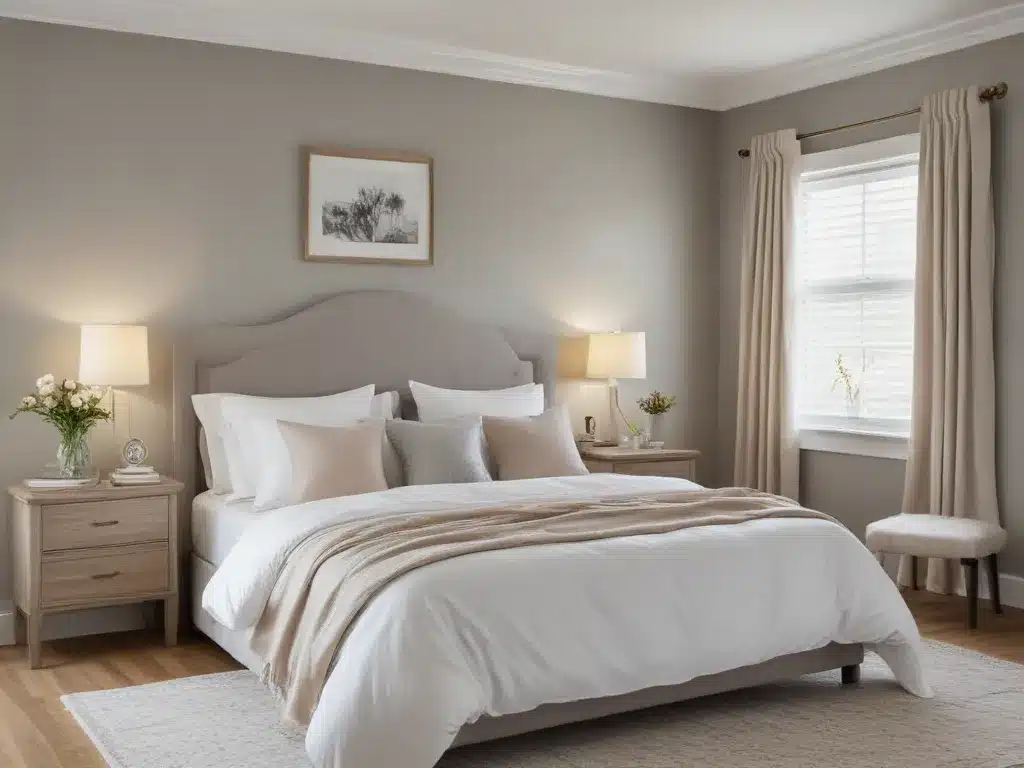Introduction
Do you often find yourself tossing and turning at night, struggling to fall asleep? If so, the clutter in your bedroom might be the culprit. A cluttered environment can contribute to feelings of stress, anxiety, and restlessness, making it difficult to achieve a good night’s sleep. In this article, I will delve into the connection between clutter and sleep quality, and provide actionable tips on how to declutter your bedroom for better rest.
The Link Between Clutter and Sleep Quality
Psychological Impact
The bedroom is a sacred space meant for rest and rejuvenation. However, a cluttered bedroom can have a profound psychological impact on your mind and body. The presence of clutter can trigger feelings of overwhelm, anxiety, and stress, which can disrupt your sleep patterns. Studies have shown that individuals living in cluttered environments tend to experience higher levels of cortisol, the body’s primary stress hormone, which can interfere with the natural sleep-wake cycle.
Visual Distractions
Clutter in the bedroom can also act as a visual distraction, preventing your mind from relaxing and winding down before bedtime. The constant visual stimuli from piles of clothes, books, and other objects can keep your brain active, making it harder to transition into a restful state. A cluttered environment can also trigger feelings of disorganization and chaos, further exacerbating stress levels and reducing the quality of your sleep.
Physical Barriers
In addition to psychological factors, clutter can also create physical barriers that hinder restful sleep. A cluttered bedroom might restrict airflow, leading to poor air quality and an uncomfortable sleeping environment. Piles of objects can also pose tripping hazards, increasing the risk of accidents and disrupting your sleep if you need to get up during the night.
The Benefits of a Decluttered Bedroom
Improved Sleep Quality
By decluttering your bedroom, you create a serene and calming environment conducive to better sleep. A minimalistic and organized space can help reduce stress levels, promote relaxation, and facilitate a smoother transition into a restful state. With fewer distractions and a more peaceful ambiance, you’ll find it easier to fall asleep and stay asleep throughout the night.
Enhanced Productivity and Focus
A decluttered bedroom can also positively impact your overall well-being and productivity. When you wake up well-rested and refreshed, you’re more likely to approach your day with increased focus, energy, and motivation. A good night’s sleep can also improve cognitive function, decision-making abilities, and overall productivity.
Reduced Stress and Anxiety
By removing the visual and psychological clutter from your bedroom, you eliminate a significant source of stress and anxiety. A decluttered space can promote a sense of calm and tranquility, allowing you to unwind and relax more effectively before bedtime. This reduction in stress and anxiety can have far-reaching benefits for your overall mental and physical health.
Decluttering Your Bedroom: Step-by-Step Guide
Step 1: Assess and Prioritize
Before you begin decluttering, take a critical look at your bedroom and identify the areas that require the most attention. Prioritize decluttering tasks based on their potential impact on your sleep quality and overall well-being.
Step 2: Create a Decluttering Plan
Develop a systematic plan for decluttering your bedroom. This might involve setting aside dedicated time slots, creating a sorting system (e.g., keep, donate, or discard), and identifying storage solutions for items you wish to keep.
Step 3: Start Small and Celebrate Progress
Decluttering can be overwhelming, so start small and celebrate your progress along the way. Begin with easily manageable tasks, such as clearing your nightstand or organizing your closet. As you achieve each milestone, take a moment to acknowledge your accomplishments and stay motivated.
Step 4: Embrace Minimalism
When decluttering your bedroom, embrace the principles of minimalism. Keep only the essential items that serve a purpose or bring you joy. Discard or donate items that no longer serve you or contribute to a cluttered environment.
Step 5: Maintain a Decluttered Space
Decluttering is an ongoing process, not a one-time event. Establish routines and habits to maintain a decluttered bedroom. This might involve setting aside regular times for decluttering, implementing organizational systems, or practicing mindful consumption habits.
Case Study: The Transformation of Sarah’s Bedroom
Sarah, a busy professional in her late twenties, had long struggled with poor sleep quality due to the clutter in her bedroom. Her nightstand was piled high with books, magazines, and miscellaneous items, while her closet was overflowing with clothes she rarely wore.
After learning about the connection between clutter and sleep quality, Sarah decided to take action. She dedicated a weekend to decluttering her bedroom, starting with her nightstand and closet. She sorted through her belongings, donated or discarded items she no longer needed, and organized the remaining items using storage solutions.
The transformation was remarkable. Sarah’s bedroom went from a cluttered and chaotic space to a serene and peaceful haven. Within a week of decluttering, she noticed a significant improvement in her sleep quality. She fell asleep more easily, slept more soundly, and woke up feeling refreshed and energized.
Sarah’s experience highlights the profound impact that decluttering can have on sleep quality and overall well-being. By taking the time to create a calming and organized bedroom environment, she was able to overcome her sleep struggles and embrace a more restful and rejuvenating nighttime routine.
Conclusion
Decluttering your bedroom is a simple yet powerful step towards improving your sleep quality and overall well-being. By removing the visual and psychological distractions of clutter, you create a serene and calming environment conducive to restful sleep. Embrace the principles of minimalism, prioritize organization, and make decluttering a regular habit to maintain a peaceful and rejuvenating bedroom space. Remember, a good night’s sleep is essential for physical and mental health, productivity, and overall quality of life. Take action today and declutter your way to better sleep.







